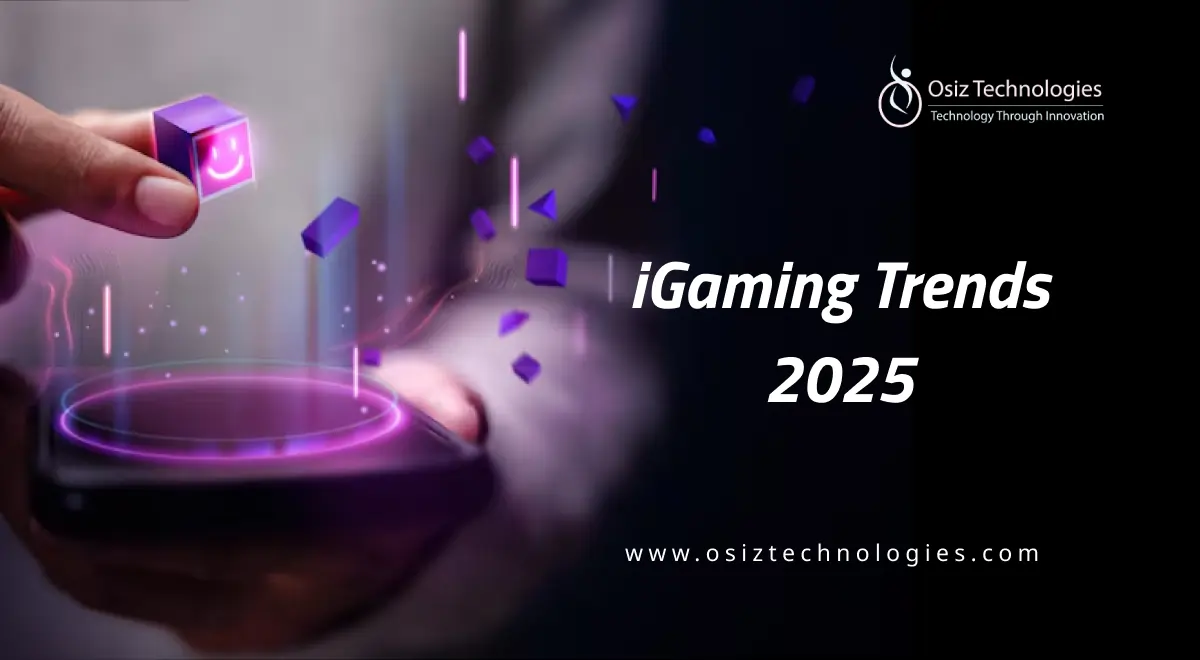Over the years, the global iGaming industry has evolved into one of the most active sectors in the overall digital economy. From online casino games to betting on esports and everything in-between, technological advancements have caused user experiences to change across the board. Gamers will see many changes in the iGaming market in 2025 due to developments in new technologies, changes in consumer behavior, and generally more secure ways of transmission and authentication. Surveys of the iGaming industry to discover underlying trends are useful for those who operate in the sector, developers of iGaming content and those involved in any kind of iGaming stakeholder.
What is iGaming?
Online gambling, or iGaming, is any kind of betting with real money you do on the internet. This includes casino games, sports bets, poker, online lotteries, fantasy sports, and even esports betting. The cool thing about iGaming is that it's way more flexible than going to a casino or placing a bet in person. You can play whenever you want, wherever you are. People can now gamble on their phones, tablets, or computers instead of having to go to a physical location. iGaming uses things like blockchain, VR/AR, and safe payment methods to make the experience better and more fun for players all over the world.
Types of iGaming
The online gaming biz is big and has lots of different parts:
Online Casinos
These sites have digital versions of slots, roulette, blackjack, and baccarat.
Sports Betting
You can bet as games happen on football, cricket, basketball, and more.
Poker and Card Games
These are online games where you play with others, just like in a real casino.
Esports Betting
People bet on video game tournaments like Dota 2, CS:GO, and Fortnite.
Fantasy Sports
Players make fake teams and score points based on how real players do.
Lotteries and Bingo
These are just online versions of the classic games of chance.
Each of these areas is getting way more attention, giving people fun times while also bringing in cash for the companies that run them and for governments everywhere.
The Evolution of iGaming Industry
The journey of iGaming began in the mid-1990s with basic online casino platforms. Over the decades, the industry has experienced massive growth due to the expansion of the internet, smartphone penetration, and advanced payment systems. The adoption of live dealer games has added authenticity, while regulatory frameworks in various countries have enhanced credibility and trust.
In recent years, iGaming has evolved beyond simple betting to include interactive gaming experiences powered by AR, VR, and blockchain. The introduction of responsible gambling tools, real-time analytics, and secure platforms has further strengthened the industry. The future of iGaming is no longer just about gambling—it is about delivering immersive digital entertainment experiences that are safe, engaging, and globally accessible.
Integration of Blockchain and Cryptocurrencies
In 2025, blockchain tech and cryptocurrencies are set to really change online gaming. Blockchain makes things open, safe, and fair since it records all transactions in a clear way. This means game results can't be messed with, which makes players trust the games a lot more.
Cryptocurrencies such as Bitcoin and Ethereum are becoming regular payment methods on online gaming sites. They make payments quicker, cheaper, and easier across borders, fixing the problems with old payment systems like slow speeds, crazy fees, and lots of rules. Plus, smart contracts based on blockchain can automatically pay out winnings, so there's no need for middleman. This not only makes players feel better, but it also makes blockchain a key part of where online gaming is going.
AI and Machine Learning in iGaming
AI and machine learning are changing iGaming by making user experiences more personal and beefing up security. Platforms can now look at how people play to suggest games, offer special deals, and spot when people are gambling safely. This is done using smart guesses.
AI helps spot cheating and keeps games fair, while chatbots are ready to help customers right away. Machine learning also gives the people in charge a better understanding of what's going on in the market. This way, they can make better choices and hold onto players. By 2025, AI should be huge in making super-personal gaming that changes for each player and gives real-time info to those running the show.
Future Outlook of iGaming in 2025 and Beyond
By 2025, iGaming should be more immersive, spread out, and reachable all over the world. VR and AR tech should cause casino experiences to feel real, and you should be able to play games easily on any device. Blockchain should still be changing how payments work and keep stuff fair, while AI should get better at making things personal and stopping cheating.
World regulators should create frameworks that are easier to understand. This will keep players safe and push new ideas. Also, 5G should make connections faster, so you can stream in HD and play live games smoothly. All this should turn iGaming into a popular online spot for fun, not just old-fashioned gambling.
Wrapping Up
The iGaming industry is entering an era of innovation where blockchain, cryptocurrencies, and advanced technologies like machine learning are driving unmatched growth and player engagement. From immersive experiences to secure transactions, the future of online gaming in 2025 and beyond will be defined by adaptability and tech-driven solutions. As a trusted Game Development Company, Osiz Technologies stands at the forefront of this transformation, delivering custom iGaming solutions that combine security, scalability, and next-gen features. With proven expertise in blockchain integration, virtual economies, and engaging game design, Osiz helps businesses redefine success in the fast-evolving online gaming market.
Listen To The Article
Recent Blogs

Avail
30% Off












